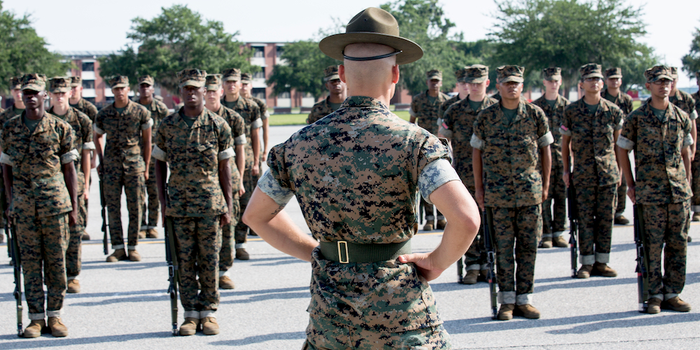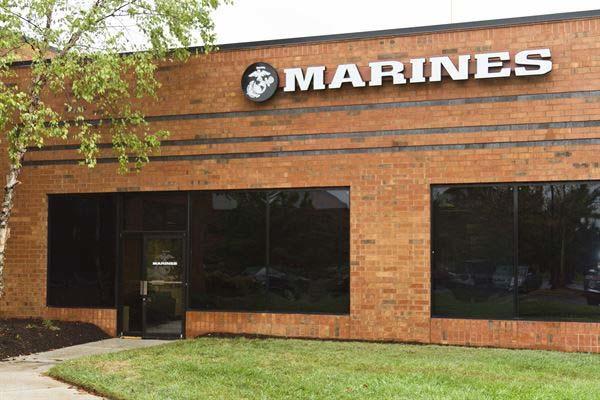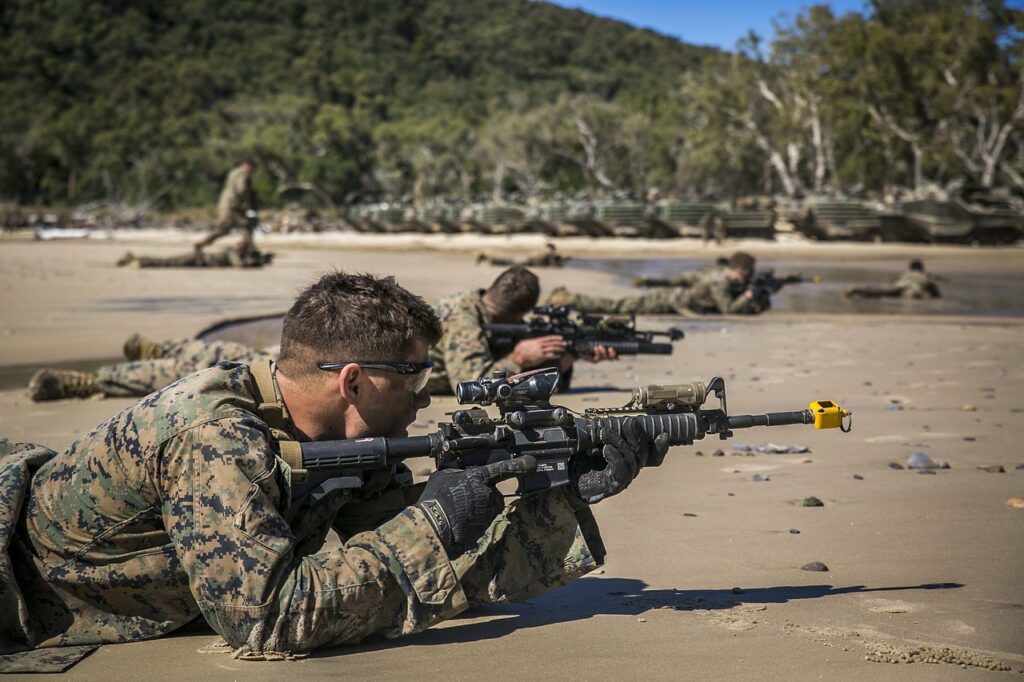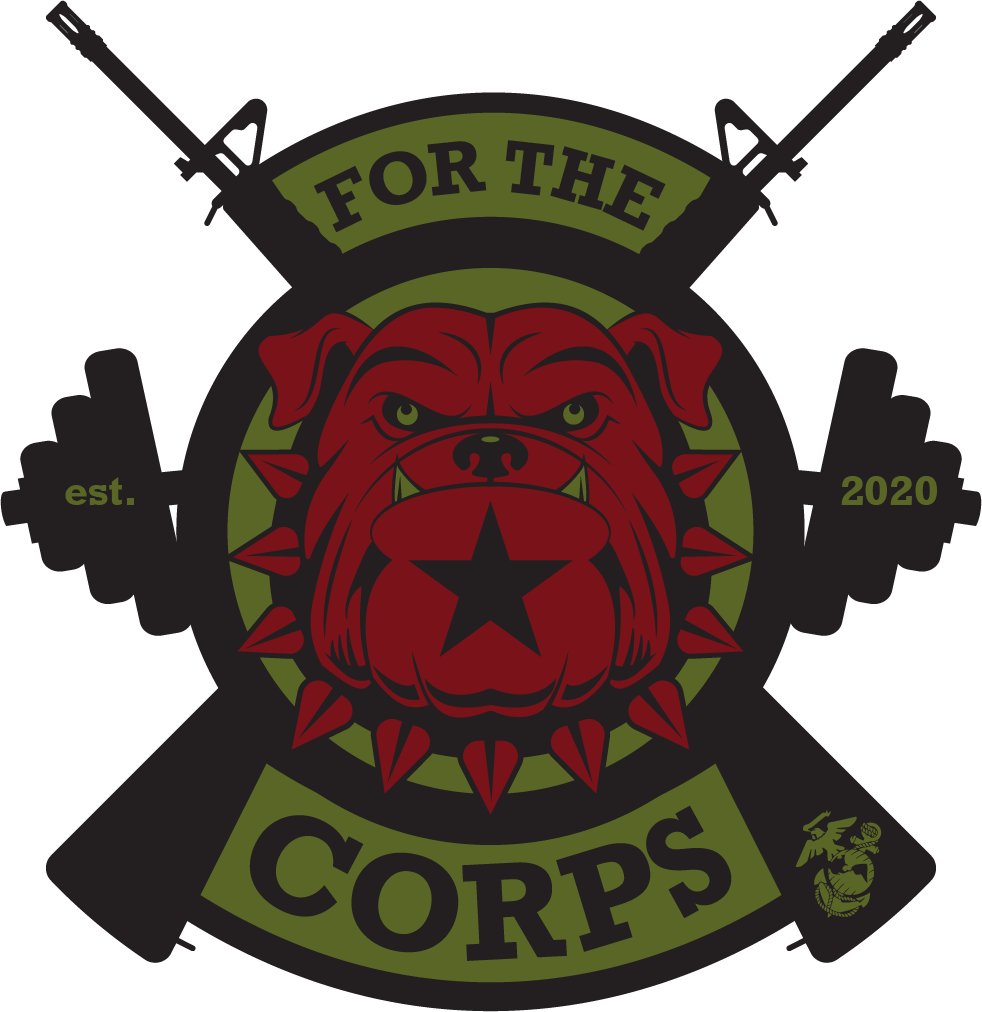The Marine Corps Enlistment Process in 2023 | A Comprehensive Guide

Are you considering joining the Marine Corps in 2023? The Marine Corps is one of the most respected and prestigious military branches in the world, and the enlistment process can be a challenging and rewarding experience. But before you take the leap, it’s important to understand the requirements, opportunities, and lifestyle of a Marine. That’s why we created this comprehensive guide to the Marine Corps enlistment process in 2023.
In this guide, we’ll cover everything you need to know, from the physical and mental requirements, to the job opportunities, training and career path, education and financial benefits, and support and resources available to Marines. By the end of this guide, you’ll have a clear understanding of what it takes to become a Marine and whether this path is right for you. So, if you are ready to take the first step towards a challenging and rewarding career in the Marine Corps, read on!
Marine Corps Enlistment Process 2023
The enlistment process for the Marine Corps is a multi-step process that includes meeting certain physical and mental requirements, as well as signing a contract for enlistment. The process can take several months to complete, and it’s important to understand each step before beginning.
Meet with a Recruiter
The first step in the enlistment process is to meet with a Marine Corps recruiter. The recruiter will explain the requirements for enlistment and determine if you meet the qualifications.
These qualifications include:
- Age: You must be at least 17 years old with a parent or guardian’s consent, or 18 years old to enlist without consent.
- Citizenship: You must be a U.S. citizen, a legal permanent resident alien, or a non-citizen national.
- Physical and Mental Health: You must pass a medical examination, which includes a physical fitness test, as well as a mental health evaluation.
- Education: You must have a high school diploma or equivalent, or pass the Armed Services Vocational Aptitude Battery (ASVAB) test.
- Criminal Record: You must have a clean criminal record and pass a background check.
Once you have met the qualifications, you will be given a contract for enlistment. This contract will outline the terms of your service, including the length of your enlistment and the job opportunities available to you.

Armed Services Vocational Aptitude Battery (ASVAB)
The next step is to take the Armed Services Vocational Aptitude Battery (ASVAB) test. This test is used to determine your aptitude for specific job fields in the military.

Physical & Mental Health Evaluation
After passing the ASVAB, you will be scheduled for a physical examination and a mental health evaluation. The physical examination will include a physical fitness test, as well as a medical examination to ensure that you meet the physical requirements for the Marine Corps. The mental health evaluation will assess your emotional and psychological well-being, as well as your ability to handle the stress of military service.
Background Check
Upon passing the physical and mental examination, the next step is a background check, this process is to ensure that you have a clean criminal record and don’t have any issues that would disqualify you from joining the military.
Swearing In
Once you have completed these steps and have been cleared to join, you will be assigned a ship date and will be sworn in as a Marine. You will then attend recruit training, also known as boot camp, which is an intensive training program that lasts for approximately 13 weeks and will prepare you for the challenges of being a Marine.
It’s important to note that the enlistment process can take several months to complete, and it’s important to understand each step before beginning. After all the process done, you will be a sworn Marine and ready to serve the country.
Job Opportunities
The Marine Corps offers a wide range of job opportunities for those who enlist. These job opportunities, also known as Military Occupational Specialties (MOS), are grouped into different categories based on the type of work that is performed. These categories include:
Combat Arms:
These MOSs include jobs such as rifleman, machine gunner, and field artillery. These jobs are focused on direct combat and include both ground and air combat roles.

Combat Support:
These MOSs include jobs such as military police, engineers, and logistics. These jobs support combat operations by providing security, construction, and supply support.
Combat Service Support:
These MOSs include jobs such as administration, legal, and chaplain’s assistant. These jobs provide support services to combat units and include roles such as clerks, cooks, and mechanics.
Cyber:
These MOSs include jobs such as cyber network operator, cyber security technician, and cyber security analyst. These jobs are focused on cyber defense, information assurance, and network operations.
Special Operations:
These MOSs include jobs such as reconnaissance man, special amphibious reconnaissance corpsman, and special operations officer. These jobs are focused on special operations and include roles such as reconnaissance, special amphibious operations, and special operations command.
Choosing your MOS
When you meet with a recruiter, you will be given a list of available MOSs and will be able to choose the one that best aligns with your interests and skills. It’s important to note that some MOSs may have specific physical and educational requirements, so it’s important to understand the requirements for the MOSs that you are interested in.
Life after the Corps
The Marine Corps is also known for providing opportunities for personal and professional growth, and many Marines go on to pursue successful careers in the private sector after their service. The discipline, physical fitness, leadership and other skills you will gain in the Marine Corps are highly valued by employers.
Ongoing Training/ Education
The Marine Corps is committed to providing its members with the training and resources they need to succeed in their chosen MOS. The Corps also provides ongoing training to help you succeed in your job and advance in your career, and also provides opportunities for education, including college-level classes and degree programs.
The Marine Corps offers a wide range of job opportunities, from combat arms to special operations, in addition to opportunities for personal and professional growth. The recruiters will guide you through the process of choosing the right MOS that aligns with your interests and skills, and the Marine Corps is committed to providing its members with the training and resources they need to succeed in their chosen MOS.
Training and Career Path
When you enlist in the Marine Corps, you will go through an intense training process to prepare you for service. This process includes Basic Training, MOS-specific schools and ongoing training to maintain your skills and advance in your career. The Marine Corps also has a promotion system in place to recognize and reward the hard work and dedication of its members, and offers opportunities for career advancement through career development programs and leadership training. Continue on for an in-depth look into each.
Basic Training
When you enlist in the Marine Corps, you will go through an intense training process to prepare you for service. The first step of this process is Basic Training, also known as Recruit Training or Boot Camp. This is a rigorous, 13-week program that is designed to transform civilians into Marines. The training includes physical fitness, weapons training, and instruction in the customs and courtesies of the Marine Corps.
Military Occupational Specialty (MOS)
Following Basic Training, you will attend a school specific to your Military Occupational Specialty (MOS). The length of these schools can vary depending on the MOS, but they typically range from several weeks to several months. These schools provide you with the skills and knowledge you need to perform your job in the Marine Corps.
The Fleet
After completing your MOS school, you will be assigned to a unit and begin your service in the Marine Corps. During this time, you will continue to receive training to maintain your skills and advance in your career. The Marine Corps offers a variety of professional development opportunities, including classes and degree programs, to help you advance in your career.
Promotional Opportunities
The Marine Corps also has a promotion system in place to recognize and reward the hard work and dedication of its members. As you gain experience and demonstrate the ability to perform at a higher level, you will be eligible for promotion to a higher rank.
Career Advancement
The Marine Corps also offers opportunities for career advancement through career development programs and leadership training. The Marine Corps is committed to providing its members with the training and resources. This is important for Marines to succeed in their chosen MOS, and advance in their careers.
Education & Financial Benefits
The Marine Corps offers a variety of education and financial benefits to its members to help them succeed both during and after their service. These benefits include the Marine Corps Tuition Assistance program, which provides financial assistance to Marines who want to pursue a college education; the Post-9/11 GI Bill, which provides financial assistance to veterans who have served on active duty after September 10, 2001; basic allowance for housing, which helps cover the cost of housing for Marines and their families and a basic allowance for subsistence, which helps cover the cost of food. Additionally, the Marine Corps offers its members the opportunity to participate in the Thrift Savings Plan (TSP), which is a retirement savings plan similar to a 401(k) with matching contributions from the government. When navigating the Marine Corps enlistment process in 2023, it is important to understand all of these benefits available to you. Now let’s take a closer look at each.
Tuition Assistance
The Marine Corps offers a variety of education and financial benefits to its members. Success both during and after their service is a key mission of the Corps. One of the key benefits is the Marine Corps Tuition Assistance program. This provides financial assistance to Marines who want to pursue a college education. This program covers up to 100% of tuition costs for college courses. This allows Marines the opportunity to earn a degree while serving their country.
Post-9/11 GI Bill
Another important benefit is the Post-9/11 GI Bill. This amazing benefit provides financial assistance to veterans who have served on active duty after September 10, 2001. This program can cover the cost of tuition, books, housing, and other expenses related to education. It also provides a monthly housing allowance and a books and supplies stipend.

Financial Benefits
The Marine Corps also offers a variety of financial benefits. This includes a basic allowance for housing, which helps cover the cost of housing for Marines and their families. In addition, Marines can also receive a basic allowance for subsistence, which helps cover the cost of food.
Thrift Savings Plan (TSP)
The Marine Corps also offers its members the opportunity to participate in the Thrift Savings Plan (TSP), which is a retirement savings plan similar to a 401(k). The TSP allows Marines to save for retirement and receive matching contributions from the government.
Support & Resources
The Marine Corps understands the importance of providing support and resources to its members, both during and after their service. This includes the Marine Corps Community Services (MCCS) program, which provides a wide range of support services and programs to Marines and their families, the Marine Corps Health Services Support Program (HSSP) which provides access to medical and dental care, as well as mental health support services, the Marine Corps Physical Fitness program which promotes physical fitness and healthy living, and the Marine for Life (M4L) program, which helps Marines transition to civilian life after their service. Additionally, the Marine Corps offers a variety of support services and resources specifically for veterans, such as access to VA benefits, job search assistance, career counseling and other resources to help Marines make the transition to civilian life.

Marine Corps Community Services (MCCS)
The Marine Corps understands the importance of providing support and resources to its members, both during and after their service. One of the key resources available to Marines is the Marine Corps Community Services (MCCS) program, which provides a wide range of support services and programs to Marines and their families. These services include counseling, financial assistance, legal assistance, and family support programs.
Marine Corps Health Services Support Program (HSSP)
Marines also have access to a variety of health and wellness resources through the Marine Corps Health Services Support Program (HSSP). This program provides access to medical and dental care, as well as mental health support services. Marines can also take advantage of the Marine Corps Physical Fitness program, which promotes physical fitness and healthy living.
Marine For Life (M4L)
Another important resource for Marines is the Marine for Life (M4L) program, which helps Marines transition to civilian life after their service. The M4L program provides job search assistance, career counseling, and other resources to help Marines make the transition to civilian life.
Additional Benefits & Resources
In addition, the Marine Corps also offers a variety of support services and resources specifically for veterans. This includes access to VA benefits, such as healthcare, disability compensation, and pension benefits. The Marine Corps also provides veterans with access to the Veterans Affairs Vocational Rehabilitation and Employment program, which helps veterans find employment after their service.
Preparing for Recruitment
The Marine Corps Enlistment process in 2023 may seem overwhelming. Preparing for recruitment into the Marine Corps is an important step in the enlistment process. To increase your chances of being accepted into the Marine Corps, you should maintain a healthy lifestyle, work on your mental and emotional well-being, focus on education, and familiarize yourself with the recruitment process and the requirements for enlistment. Let’s break each of these down.
Maintain a Healthy Lifestyle
One of the most important things you can do to prepare for recruitment is to maintain a healthy lifestyle. This includes eating a well-balanced diet, getting regular exercise, and maintaining a healthy weight. The Marine Corps has strict physical fitness requirements, so it is important to be in good physical shape before applying.
Mentally Prepare
Another important aspect of preparation is to work on your mental and emotional well-being. The Marine Corps can be a challenging and demanding environment, so it is important to be mentally and emotionally prepared for the rigors of service. This can include working on stress management techniques, developing a positive attitude, and seeking out counseling or other support if needed.
Educate Yourself
Education is also an important aspect of preparation. The Marine Corps offers a variety of educational opportunities, including the Marine Corps Enlisted Commissioning Education Program (MECEP), which allows enlisted Marines to attend college and earn a commission as an officer. If you are interested in this program, it is important to maintain good grades and to take college preparatory classes.
Familiarize Yourself with the Recruitment Process
Finally, it is important to be familiar with the recruitment process and the requirements for the enlistment process in 2023. This includes researching the different job opportunities available in the Marine Corps and the qualifications required for each one. It also includes understanding the testing and physical requirements for enlistment, as well as the background and security clearance process.
Conclusion
Joining the Marine Corps is a life-changing decision that requires dedication, hard work, and preparation. Are you ready to take on the challenge of serving your country and becoming a part of one of the most elite fighting forces in the world? If so, then this comprehensive guide to the Marine Corps Enlistment Process in 2023 is for you.
We’ll take you through the process step by step, from understanding the different job opportunities available, to the qualifications required for each one, and the physical and mental rigors of service. We’ll also go over the training and career paths, education and financial benefits, support and resources available, and the importance of preparing for recruitment.
But Wait, There’s More!
But that’s not all, as a token of appreciation for reading this blog post, we are offering a free digital download of a detailed guide to Marine Corps Enlistment Process in 2023. This guide will help you navigate the process and answer any questions you may have. So, if you’re ready to take the first step towards a rewarding career in the Marine Corps, keep reading and download the guide today!
